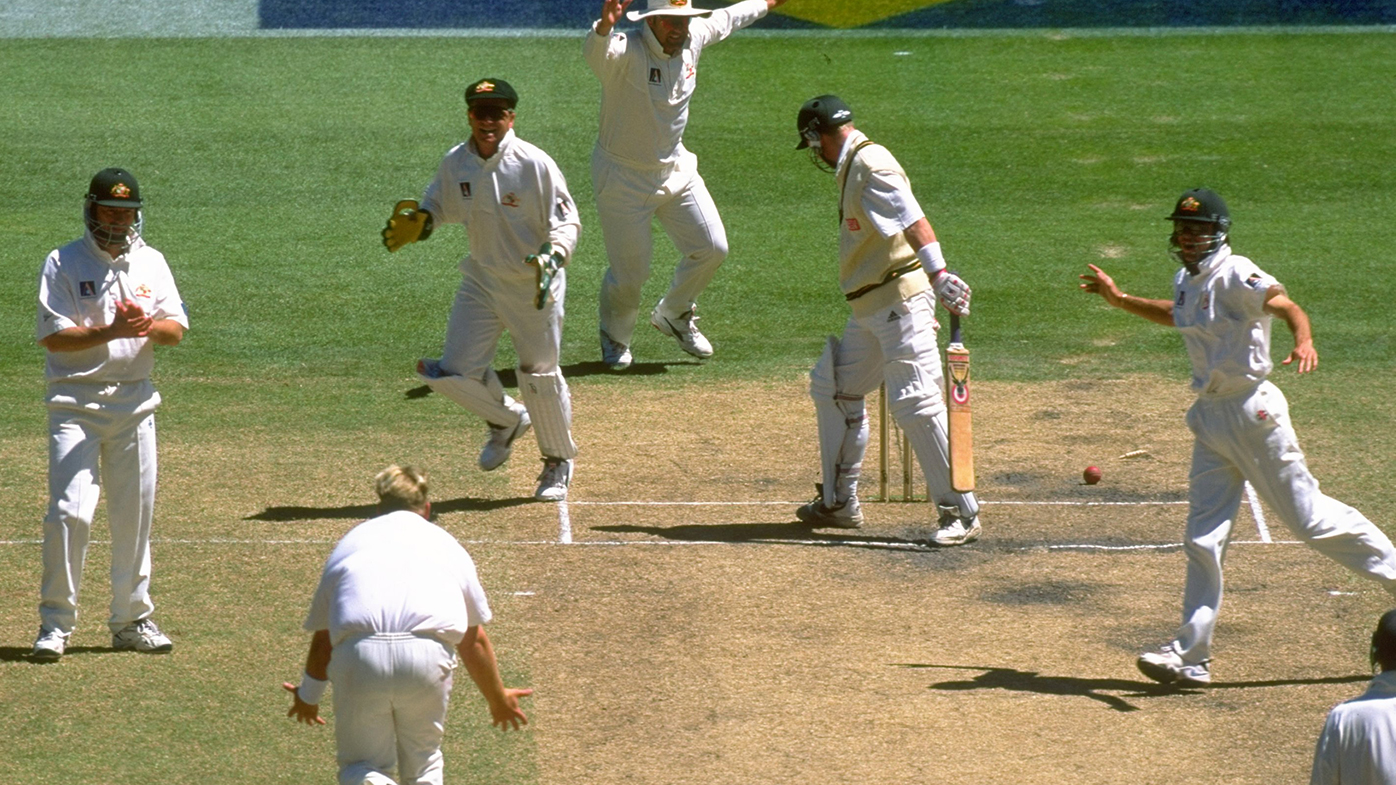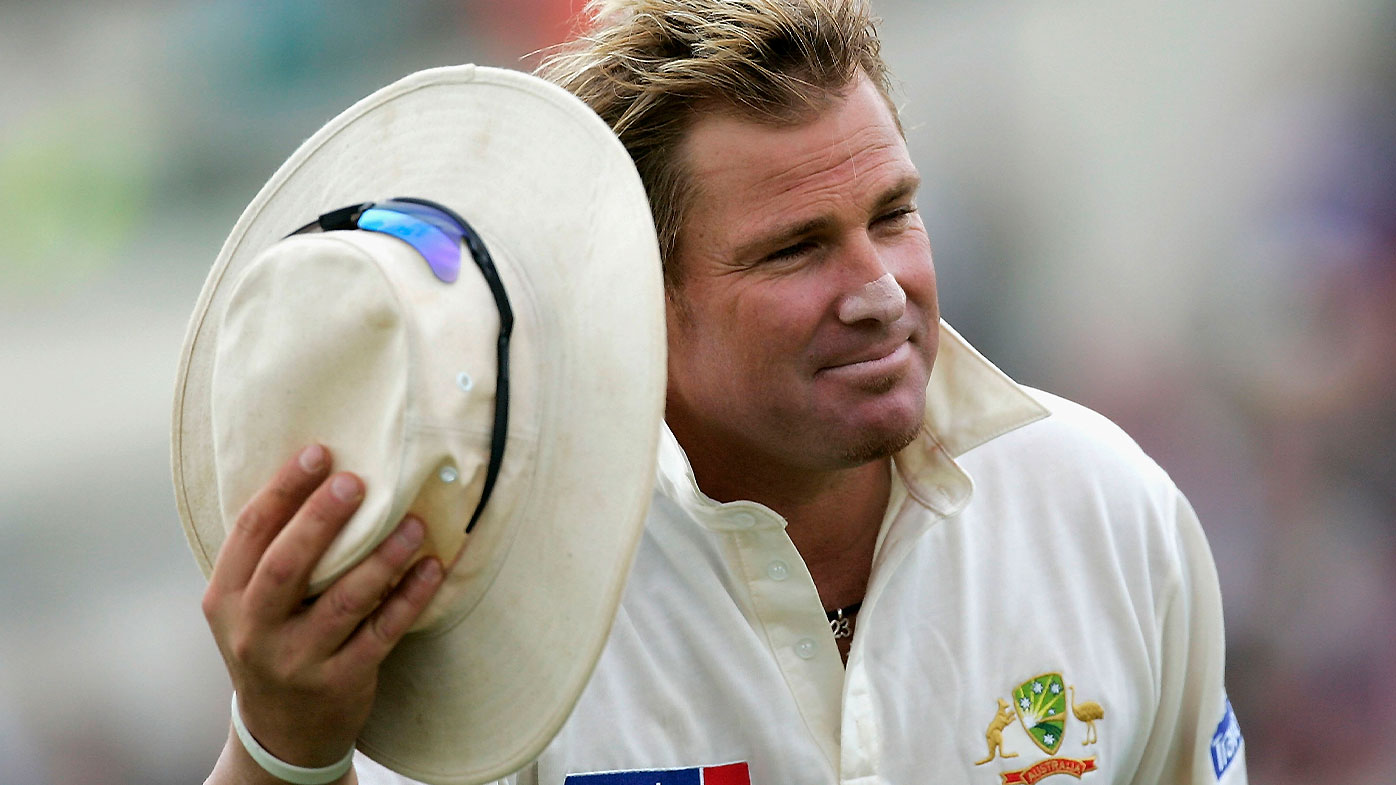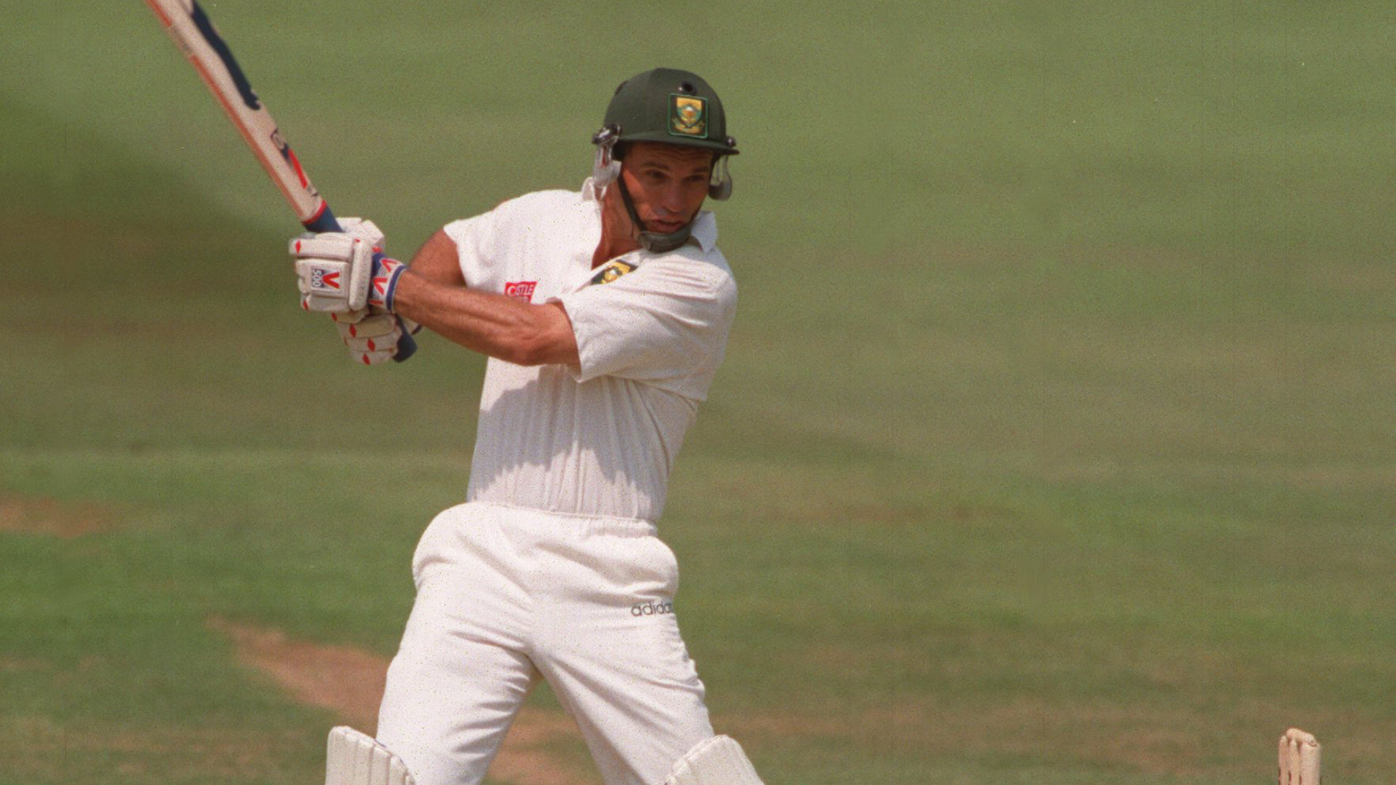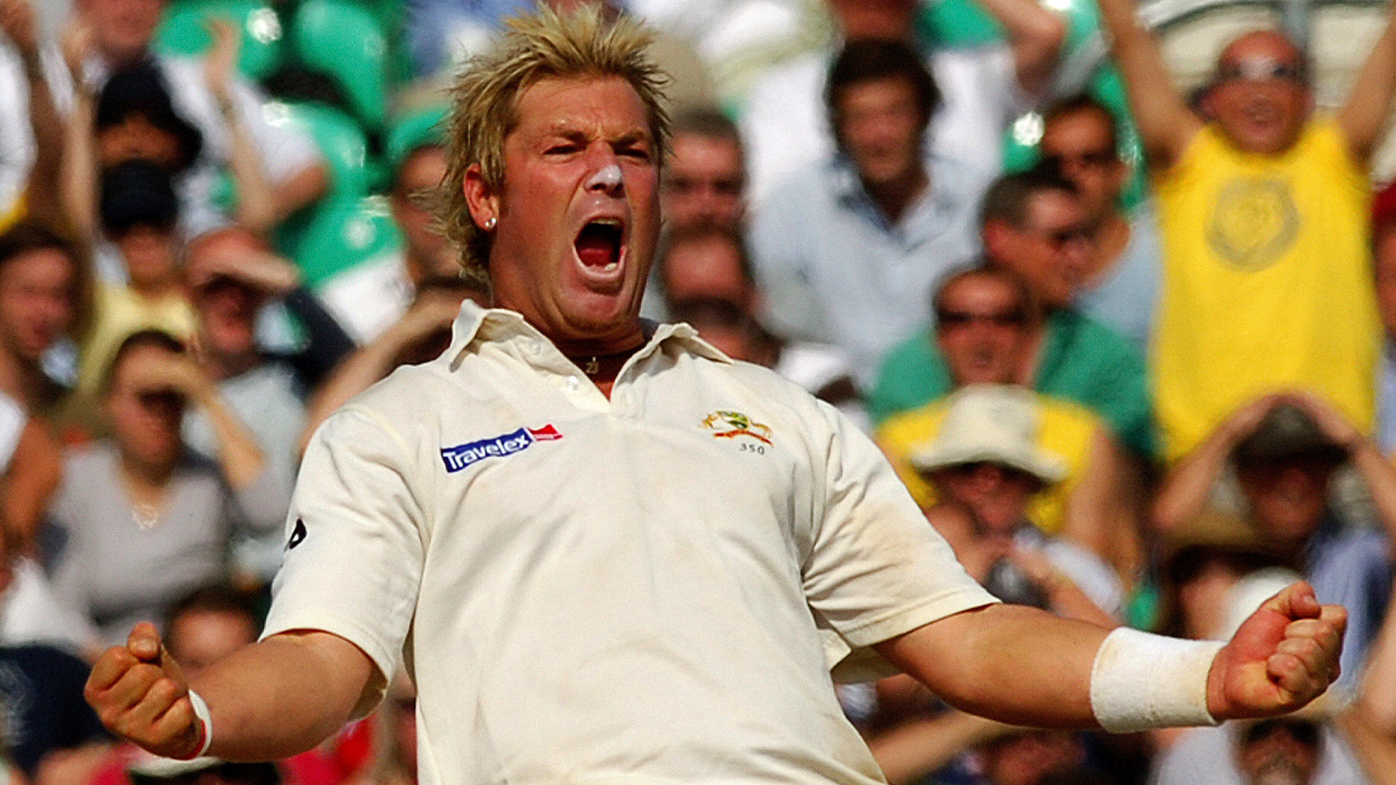In what’s been a terrible week for Australian cricket, few have felt the loss of both Rod Marsh and Shane Warne as closely as former opening batter Kepler Wessels.
Wessels was a teammate of Marsh during World Series Cricket in the late 1970s, and also when he made his Test debut for Australia in 1982-83, and then finished his career playing against Warne after South Africa’s re-admission to international cricket.
By the time South Africa arrived in Australia in the summer of 1993-94, Warne was a superstar, having destroyed the West Indies with 7-52 in Melbourne the previous summer, and run riot against England during the northern summer of 1993, including what became known as the Ball of the Century to dismiss Mike Gatting at Old Trafford.
READ MORE: Fresh vaccine blow as Djokovic locked out
EXCLUSIVE: Legends’ ultimatum to desperate $1 million exile
READ MORE: Pakistan’s extraordinary first Test confession
Despite the hype that surrounded the young leg-spinner, Wessels, who captained South Africa on that tour, said the team was conscious not to get caught up in the circus that surrounded Warne.
“We didn’t really have a problem with that, we also had some one-day internationals before the Test series, and we played those on wickets that didn’t turn that much,” Wessels told Wide World of Sports.
“We went into the first Test in Melbourne, which ended up being ruined by rain, but we’d seen him beforehand.
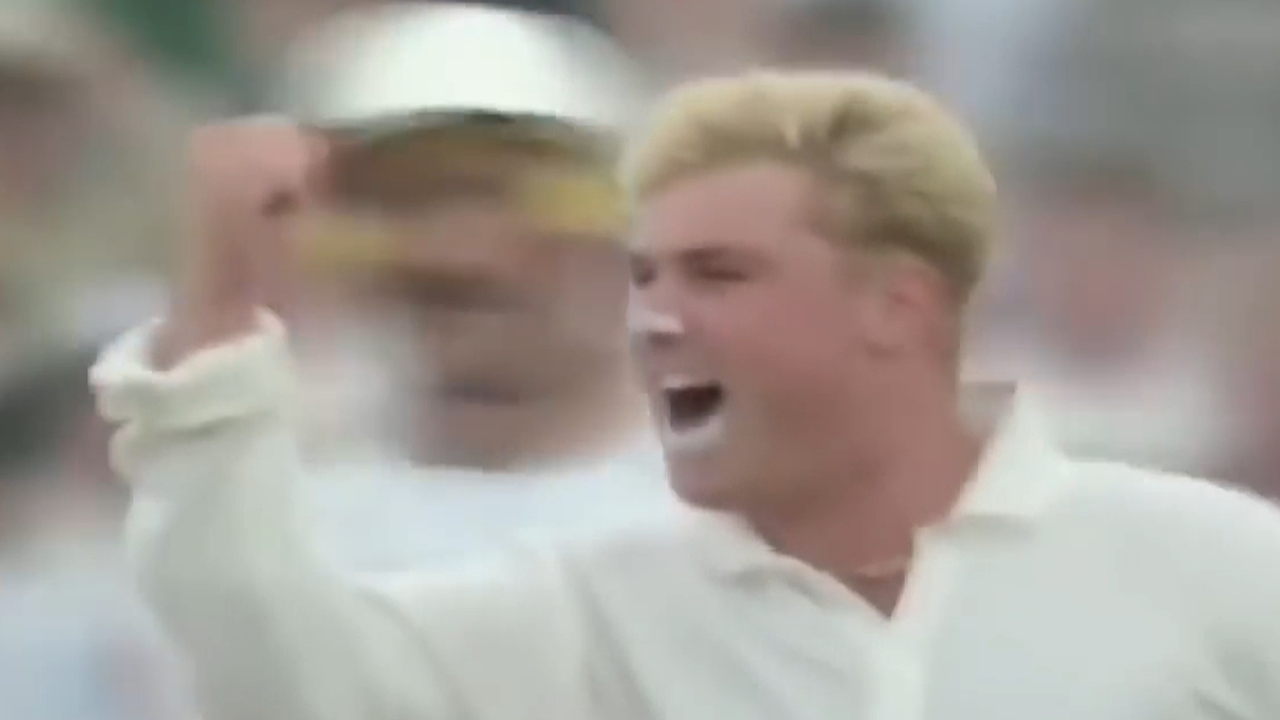
“With the exception of Daryll Cullinan, I don’t think he psyched anybody out, if the googly or the flipper got them out it was just through good bowling, rather than a mental thing.”
The mere mention of Cullinan will delight Australian cricket fans old enough to remember the spell Warne cast over the highly-rated South African batter.
Good enough to play 70 Tests and finish with the more than respectable average of 44.21, Cullinan fell to Warne six times that summer, four times in ODIs as well as both innings of the SCG Test.
Nine commentator Richie Benaud described Warne’s dismissal of Cullinan in the first innings of that Test as like “candy from kids.”
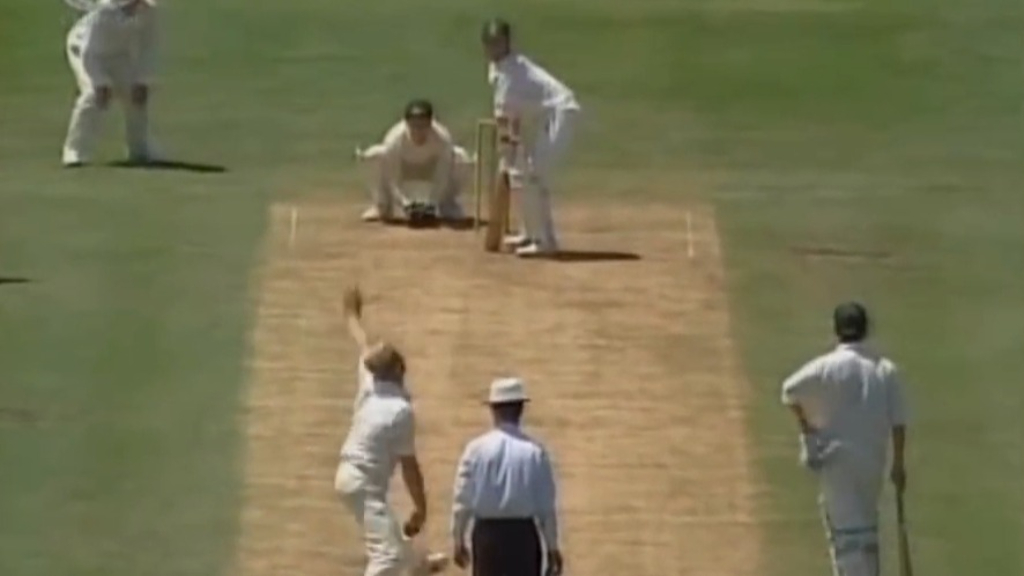
In a remarkable co-incidence, Warne died on Cullinan’s 55th birthday.
“Daryll really struggled unfortunately, and it all started in a one-dayer in Melbourne, he went in towards the back-end of the innings and got a half-tracker that he hit for four, then he got bowled by a flipper,” Wessels explained.
“That just got into his head, and when you play against Australia, if they smell blood in the water they’re all over you.
“Every time Daryll came in they’d bring Warne on and he just won the mental battle over Daryll.”
In fairness Cullinan wasn’t the only player of that era who struggled with Warne’s flipper, which was at its most dangerous in the mid-90s, before he was hampered by injury.
“When we played him in that summer of 93-94 he was probably at the top of this game, he had the flipper going well, it was before the finger and shoulder injuries, he was really confident and bowling well,” Wessels noted.
“We were aware of him obviously before we came, we were expecting a significant challenge and that’s exactly what we got.
“He bowled especially well in Sydney, we somehow won that match, I still don’t know how, but it was obvious that he was going to be a handful, especially if the pitch gave him any help.”
A player who Warne once rated as one of the toughest he bowled to, Wessels explained that as a left hander facing the leg-spinner became more difficult as the footmarks developed outside his off-stump.
“In my personal experience of batting against him, I never really found a problem in the first innings, but it became a problem in the second innings, mainly because of his accuracy in hitting the rough,” Wessels said.
“For me, the wrong-un and flipper wasn’t the problem, it was the leg-spinner that he landed in the rough almost at will, and that’s what really made him as effective as he was.”
The Australian summer often started with Warne revealing he’d been working on a new mystery ball, although it was usually little more than an attempt to get a phycological advantage over the touring side.
“Oh yeah, absolutely!” Wessels laughed.
“He was the master of the mind games, and if he sensed he could get an advantage over you that way he’d do it, and he did it so well.
“The thing that I really liked about him, we were totally different personalities but we got on really well… One of the things that I appreciated about him was that he had huge respect for those that had come before him.
“He had a good idea about players that had played for Australia and done well. He was really good with that and it was what you really admired about him, his sense of history.”
Wessels and Warne were the opposing coaches for the final of the inaugural IPL season in 2008, with Warne’s Rajasthan side getting the victory in a match that went down to the final ball of the 20th over.
“We actually chatted a lot during that IPL and it was always fun,” Wessels recalled.
“We ended up playing them in the final and it was a great game. Even during the game we were interacting and that was fantastic.
“We spent a fair bit of time together there, and also on the commentary circuit.”
The loss of Marsh at the age of 74, a week after he suffered a heart attack, followed by Warne’s death later that day, meant Australia lost two legends of the game in little more than 12 hours.
“I’ve always had so much time for Rod Marsh and Dennis Lillee, not just for the way they treated me in the early stages of World Series Cricket, but also when I made my Test debut for Australia,” Wessels said.
“They made a real effort to make me feel welcome and ease me into the side and into the setup. I’ve always had a great appreciation for those two, they were absolutely awesome.
“Rod’s passing was a real shock, to lose both Rod and Warne within 24 hours is just horrible.”
For a daily dose of the best of the breaking news and exclusive content from Wide World of Sports, subscribe to our newsletter by clicking here!

